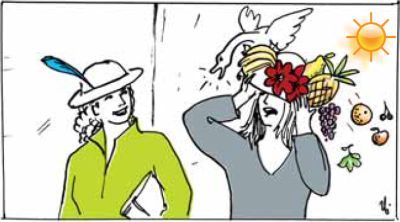The value of a document does not increase the longer it gets. Your readers will not respect you more because you have written 20 pages instead of 10, especially when they realise that you could have written what you wanted to say in 10. They may well resent you for taking more of their time than necessary.
Some ways to cut out unnecessary words include:
- Not stating the obvious. Trust your readers' common sense.
- Not cluttering your document with redundant expressions like 'as is well known', 'it is generally accepted that', 'in my personal opinion', 'and so on and so forth', 'both from the point of view of A and from the point of view of B'.
- Not repeating yourself.
Shorter documents and shorter sentences tend to have more impact.
As a guide:
1 document = 15 pages at the most
1 sentence = 20 words on average
(but sprinkle in a few short sentences!)
Unnecessarily long sentences are a serious obstacle to clarity in European Commission documents. Try to break them up into shorter sentences. But remember to include link words ('but', 'so', 'however') so the coherence doesn't get lost in the process.
Use simple words where possible. Simple language will not make you seem less learned or elegant; it will make you more credible.
 |
 |
| in view of the fact that |
as |
| a certain number of |
some |
| the majority of |
most |
| pursuant to |
under |
| within the framework of |
under |
| accordingly, conseguently |
so
|
| for the purpose of |
to |
| in the event of |
if |
| if this is not the case |
if not |
| if this is the case |
if so |
| concerning, regarding, relating to |
on |
| with reference to, with regard to |
about |
Simple, uncluttered style also means:
... avoiding ambiguity
If you use the same word to refer to different things, you could confuse your reader:
 |
 |
| You must hand in your application by Tuesday. You may also submit an application for this deadline to be postponed. Your application ... (what are we talking about now?) |
You must hand in your application by Tuesday. You may also ask for the deadline to be postponed. Your application ... |
... not changing words just for 'style'
You may think you can make your document less boring by using different words to refer to the same thing. Again, though, you could confuse your reader:
 |
 |
| You must hand in your application by Tuesday. The committee may turn down your reguest... (i.e. your application - or is it?). |
You must hand in your application by Tuesday. The committee may turn it down |
... using the positive form, not the negative
 |
 |
| It is not uncommon for applications to be rejected, so do not complain unless you are sure you have not completed yours incorrectly. |
It is guite common for applications to be rejected, so complain only if you are sure you have completed yours correctly. |








